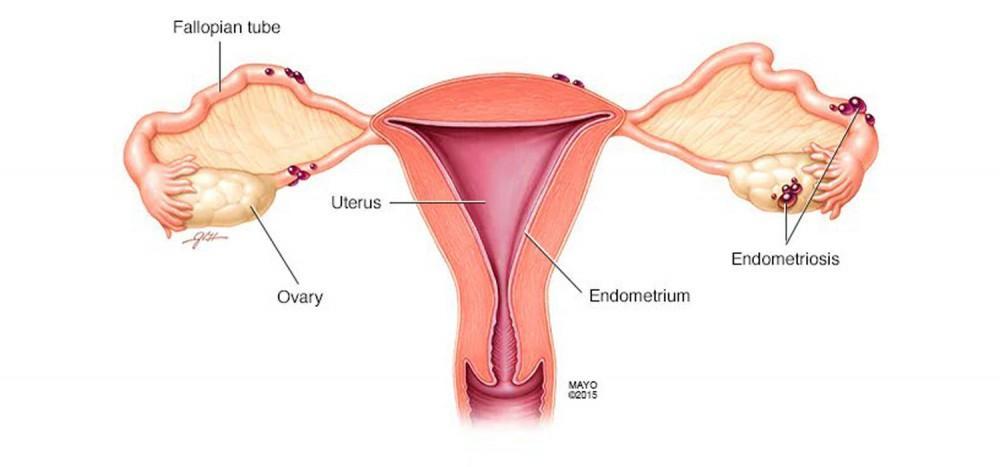Endometriosis is a common yet often misunderstood condition that affects millions of women worldwide. If you have been diagnosed with endometriosis or suspect you might have it, you likely have many questions. Here, we answer some of the most frequently asked questions about endometriosis to help you better understand this condition and how to manage it.

1. What is Endometriosis?
Endometriosis is a condition where tissue similar to the lining of the uterus grows outside the uterus. This misplaced tissue can cause inflammation, pain, and in some cases, fertility issues.
2. What Are the Symptoms of Endometriosis?
Common symptoms include:
- Chronic pelvic pain
- Painful periods (dysmenorrhea)
- Pain during intercourse
- Heavy or irregular menstrual bleeding
- Digestive issues like bloating or constipation
- Difficulty conceiving
3. What Causes Endometriosis?
The exact cause of endometriosis is unknown, but several theories include genetic factors, retrograde menstruation, immune system dysfunction, and hormonal imbalances.
4. How is Endometriosis Diagnosed?
Diagnosis typically involves a combination of:
- Medical history and symptom evaluation
- Pelvic exam
- Ultrasound imaging
- Laparoscopy (a minimally invasive surgical procedure that confirms diagnosis)
5. Can Endometriosis Affect Fertility?
Yes, endometriosis can impact fertility by causing inflammation, scarring, and adhesions that interfere with egg release and implantation. However, many women with endometriosis can still conceive naturally or with the help of fertility treatments.
6. What Are the Treatment Options for Endometriosis?
Treatment depends on symptom severity and may include:
- Pain management with medication (NSAIDs, hormonal therapy)
- Laparoscopic surgery to remove lesions and scar tissue
- Lifestyle changes, including diet and stress management
- Assisted reproductive technologies like IVF for those facing fertility issues
7. Is There a Cure for Endometriosis?
Currently, there is no permanent cure for endometriosis, but effective treatments can help manage symptoms and improve quality of life.
8. Can Lifestyle Changes Help Manage Endometriosis?
Yes, adopting a healthy lifestyle can help reduce inflammation and pain. This includes:
- Maintaining a balanced diet rich in anti-inflammatory foods
- Regular exercise and physical activity
- Stress management techniques like yoga and meditation
9. When Should You See a Doctor?
If you experience chronic pelvic pain, painful periods, or difficulty getting pregnant, consult a gynecologist for evaluation and management options.
Seeking Expert Care for Endometriosis
At Indigo Women’s Center, we specialize in the diagnosis and treatment of endometriosis, helping women find relief and improve their reproductive health. If you have concerns about endometriosis, contact us at +91 72991 09555